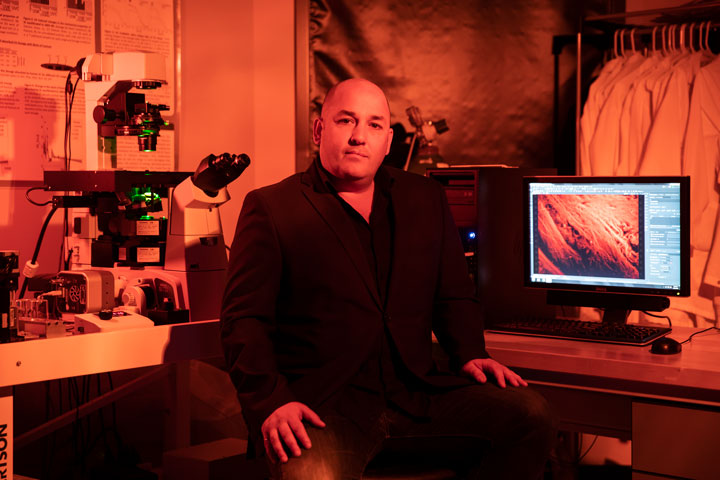Flipping a coin
Engineers use outside-the-box thinking to pursue careers in nontraditional, unexpected places

It’s fairly common for graduate students in biomedical engineering to have undergrad degrees in other disciplines,” says Guy German, associate professor and director of graduate programs in Watson’s Biomedical Engineering Department.
German adds that the same holds true for most of his departmental colleagues. He surveyed them and found that fewer than half hold doctorates in biomedical engineering and only about 20 percent have undergraduate degrees in the discipline.
He is a perfect example. German holds an MPhys in astrophysics from the University of Edinburgh in Scotland, a master’s degree in aerospace dynamics from Cranfield University in England and a PhD in mechanical engineering, also from the University of Edinburgh.
While his path might seem circuitous, German says he simply followed a passion for fluid mechanics that he developed while studying astrophysics. He then transitioned from studying the motion of fluids on a cosmological scale to exploring how to minimize drag on aircraft.
Once armed with his aerospace dynamics master’s degree, German took a job with BAE Systems (now Airbus UK) designing commercial aircraft. From there, he became a consultant in the oil and gas industry before deciding it wasn’t what he wanted to do for the rest of his life.
“I wanted to direct my own research, and the only way to do that was to go into academia again,” he says. “So, I took a huge pay cut and became a slightly older-than-average PhD student at the University of Edinburgh, this time in the Mechanical Engineering Department.”
Following his passion once more, German focused his doctoral work on the fluid mechanics of soft solids (gels).
While searching for a post-doctoral position, an interesting job caught German’s eye. It wasn’t until he applied that he found out the job was in the United States — at Yale University. At Yale, German refocused his work from soft materials to soft biological materials.
Now at Binghamton University, German’s research is understanding the mechanics of human skin. “I look at the effects of aging, photodamage, infections and disease on the mechanical integrity of skin,” he says.
German, who has “loved every minute” of his self-described “balmy journey,” has a simple answer for students who ask for career advice or what to study next: Follow your passion.
“If it’s hard to decide what you want to do, then figure out what you don’t want to do,” he says. “It’s easier to narrow down your direction doing that. And, when you know what directions you could go in, choose the one you feel most passionate about.”
